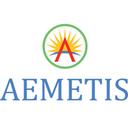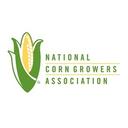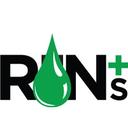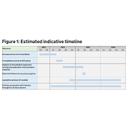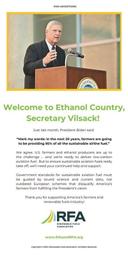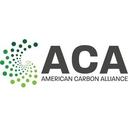Honeywell and GranBio Technologies on Oct. 10 announced that they will combine Honeywell’s ethanol to jet (ETJ) technology with GranBio’s cellulosic ethanol AVAP technology to produce carbon-neutral SAF from biomass residues.
The Council of the European Union on Oct. 9 adopted regulations for the ReFuelEU initiative. The new law aims to boost both the demand for and supply of sustainable aviation fuel (SAF) within the European Union.
DOE awards $16.7M to advance production of affordable biofuels, biochemicals
The U.S. Department of Energy Bioenergy Technologies Office has announced $16.7 million in funding for five projects to advance the production of affordable biofuels and biochemicals that will significantly reduce greenhouse gas (GHG) emissions.
In an aviation industry first, VoltAero has flown the proprietary electric-hybrid powertrain for its Cassio family of aircraft with 100 percent sustainable provided by TotalEnergies. The fuel, Excellium Racing 100, is made from ethanol.
Evident on Sept. 21 announced that World Energy has become the first user of its new, international global standard for SAF. The certification scheme, named Fly-i, will work in a similar way to the procurement of RECs.
DOE seeks input on building supply chains for SAF
The U.S. DOE has released a RFI to better understand the challenges facing critical elements within SAF supply chains. The agency is specifically seeking input from industry, academia, research laboratories, government agencies, and stakeholders.
LanzaJet and Technip Energies on Sept. 19 announced an agreement to strengthen their exclusive collaboration to support the global deployment of the LanzaJet Alcohol-to-Jet (ATJ) Process technology for the production of SAF.
Aemetis Inc. on Sept. 13 announced it has received a Use Permit from the City of Riverbank to build a 90 million gallon per year SAF and renewable diesel plant at the 125-acre Riverbank Industrial Complex in Riverbank, California.
Agricultural Secretary Tom Vilsack on Sept. 12 called on ethanol producers to seize the opportunity offered by the emerging SAF market and stressed that climate-smart ag and carbon capture technologies must play a role in ethanol-to-SAF production.
NCGA President Tom Hagg and the leaders of 16 state corn grower groups on Sept. 7 sent a letter to Treasury Secretary Janet Yellen urging the adoption of the U.S. DOE’s GREET model to measure GHG reductions for the purposes of the SAF tax credit.
Lummus Technology has announced the commercial availability of its ethanol-to-SAF process technology. The technology provides operators with a large-scale, commercially demonstrated solution to reduce the aviation industry's GHG emissions.
The U.S. EPA on Aug. 21 released data indicating nearly 2.04 billion RINs were generated under the RFS in August, up from 1.84 billion generated in August 2022. Total RIN generation for the first eight months of the year reached nearly 15.45 billion.
Clean Fuels Alliance America, American Soybean Association, National Oilseed Processors Association the U.S. Canola Association are urging the Biden administration to adopt GREET for the purposes measuring GHG reductions for the SAF tax credit.
Members of the European Parliament (MEPs) on Sept. 13 approved a new law that ramps up requirements for sustainable aviation fuel (SAF) within the European Union but sets limits on what types of feedstocks that fuel can be made from.
A conversation with Bruce Rastetter about his history in agriculture and ethanol production, as well as the transformative potential of CCS.
The U.K. government on Sept. 4 announced plans to introduce a revenue certainty mechanism to support domestic SAF production. The initiative aims to bolster the development of SAF and drive further investment in SAF projects.
Through the GREATER MSP Partnership, Bank of America, Delta Air Lines, Ecolab and Xcel Energy have established the Minnesota SAF Hub – the first large-scale SAF Hub in the U.S. committed to scaling SAF production.
Minnesota Department of Agriculture Commissioner Thom Petersen is encouraging the federal government to allow the U.S. DOE's GREET model to be used to calculate GHG reductions for the purposes of the SAF tax credit.
A major farm show and state fair this week in two Midwest states will provide the backdrop for the Renewable Fuels Association’s latest push to see American-made, lower-carbon ethanol supported as a feedstock for sustainable aviation fuel (SAF).
LanzaTech U.K. Ltd, a subsidiary of LanzaTech Global Inc. has announced the next stage of consultation on its proposed industrial facility to turn ethanol into sustainable aviation fuel (SAF). The consultation is open through Sept. 13.
The American Carbon Alliance on Aug. 23 sent a letter to Internal Revenue Service Commissioner Danny Werfel urging the U.S. Treasury Department to adopt the U.S. Department of Energy’s GREET model to calculate the GHG emissions impacts of SAF.
Reps. Jasmine Crockett, D-Texas, and Max Miller, R-Ohio, on Aug. 18 introduced the Farm to Fuselage Act, legislation that aims to update the Farm Bill to facilitate increased domestic production of sustainable aviation fuel (SAF).
The U.S. Department of Energy's national laboratories are helping companies advance sustainable aviation fuel (SAF) technologies by offering customizable pilot plants, laboratory equipment, and even supercomputers.
The U.S. Department of Energy’s Bioenergy Technologies Office has awarded $2.5 million in funding to four projects that aim to advance lab-developed clean bioenergy technologies towards commercialization.
Gevo Inc. released second quarter financial results on Aug. 10, reporting that its RNG business continues to ramp up production and indicating that the company is pivoting to a modularized approach for its alcohol-to-jet (ATJ) technology.
Swedish Biofuels AB announced on Aug. 7 that the ASTM International Committee has accepted the use of C2 to C5 alcohols as feedstock for the alcohol-to-jet pathway as well as a new specification for fully formulated aviation fuel with aromatics.
Aemetis Inc. released Q2 financial results on Aug. 3, reporting progress with the development of its dairy RNG project and its proposed renewable diesel and SAF biorefinery. The company also highlighted its existing ethanol and biodiesel operations.
Gevo Inc. has announced that its Net-Zero 1 ethanol-to-jet project has been invited by the U.S. DOE to the due diligence and term sheet negotiation phase for a $950 million loan guarantee under the Title 17 Clean Energy Financing Program.
The Lufthansa Group and the HCS Group have signed a letter of intent (LOI) to partner on the production and supply of sustainable aviation fuel (SAF). Starting in 2026, HCS could supply Lufthansa with SAF produced via ATJ technology.
Growth Energy CEO Emily Skor discusses the importance of using the GREET model to calculate the lifecycle analysis of SAF in the U.S. and debunks claims by the anti-agriculture crowd that renewable fuels will promote “clearing land to grow crops.”
Advertisement








